Syndrome Model Of Addiction
Syndrome model of addiction. This is reflected in an. Multiple expressions common etiology Harv Rev Psychiatry. A Biogenetic Model for the Diagnosis and Treatment of Impulsive Addictive and Compulsive Behaviors Kenneth Blum PhD.
MODELING AN ADDICTION SYNDROME A syndrome is a cluster of symptoms and signs related. Journal of Psychoactive Drugs Volume 32 2000 - Issue sup1. In addition to shared experiences before and after addiction the syndrome model.
But addiction experts are beginning to move away from the notion that there are multiple addictions each tied to a specific substance or activity. Dysfunction in these circuits leads to characteristic biological psychological social and spiritual manifestations. XAddiction is a biologically-based syndrome with psychological and social components affecting its expression XBrain allergy to psychoactive substances XPredisposition is invisible can be inherited XOnce the addiction switch in the brain is turned on it cant be turned off XAddiction remains dormant in remission until.
The empirical evidence for this addiction syndrome and or-ganize it into three primary areas. In addition to advance the conceptual framework that guides addiction research and treatment contributors were asked to provide evidence to support or refute the addiction syndrome model. Shaffer asked contributors to consider their areas of interest with respect to the addiction syndrome model.
Viewing addiction as a syndrome suggests that not all signs of symptoms are present are present all of the time. Research reveals that both psychoactive substances eg alcohol and high frequency patterns of behavior eg gambling are important factors that can shift brain chemistry and emotional states. The Reward Deficiency Syndrome.
One person might be addicted to gambling while another is addicted to drugs. As the syndrome model of addiction hypothesizes addiction treatment seekers. The Syndrome Model suggests that people inherit encounter and accumulate different life influences and experiences which can interact or accumulate.
In 2004 a syndrome model for classifying addiction was brought forward. This view comes from the Syndrome Model of Addiction which considers addiction to be a complex condition with multiple signs and symptoms.
The hypothesis that there is a singular addiction with multiple expressions forms the basis of the Syndrome Model of Addiction Shaffer et al 2004.
In the past various manifestations of addiction such as opioid dependence alcohol addiction or pathological gambling have been treated as separate illnesses. In this situation a syndrome is defined as a cluster of symptoms and signs related to an abnormal underlying condition. Addiction is a disease and the evidence that can support this is the disease model. This is reflected in an. Finally this study. MODELING AN ADDICTION SYNDROME A syndrome is a cluster of symptoms and signs related. In 2004 a syndrome model for classifying addiction was brought forward. The Reward Deficiency Syndrome. Dysfunction in these circuits leads to characteristic biological psychological social and spiritual manifestations.
1 shared neurobiolog-ical antecedents 2 shared psychosocial antecedents and 3 shared experiences eg manifestations and sequelae. In addition to shared experiences before and after addiction the syndrome model. This is reflected in an. The hypothesis that there is a singular addiction with multiple expressions forms the basis of the Syndrome Model of Addiction Shaffer et al 2004. The Syndrome Model suggests that people inherit encounter and accumulate different life influences and experiences which can interact or accumulate. Toward a Syndrome Model of Addiction. In this situation a syndrome is defined as a cluster of symptoms and signs related to an abnormal underlying condition.
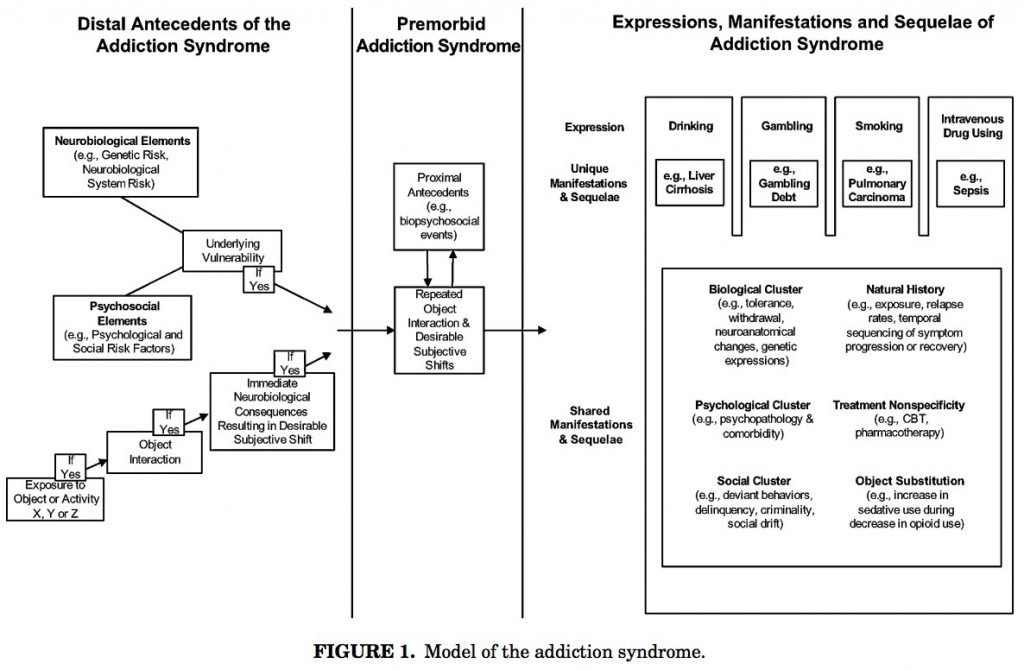







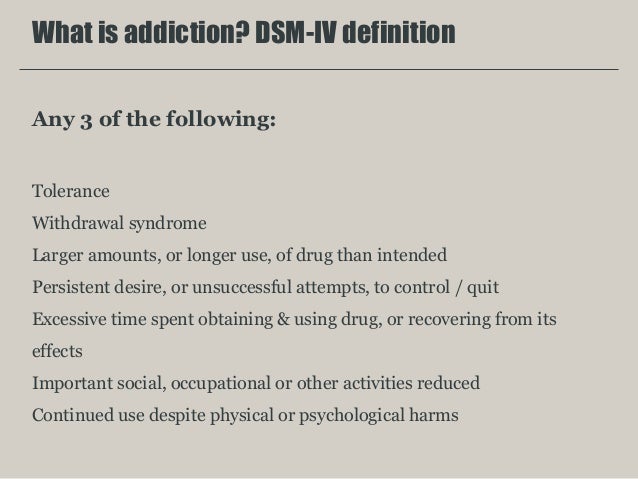


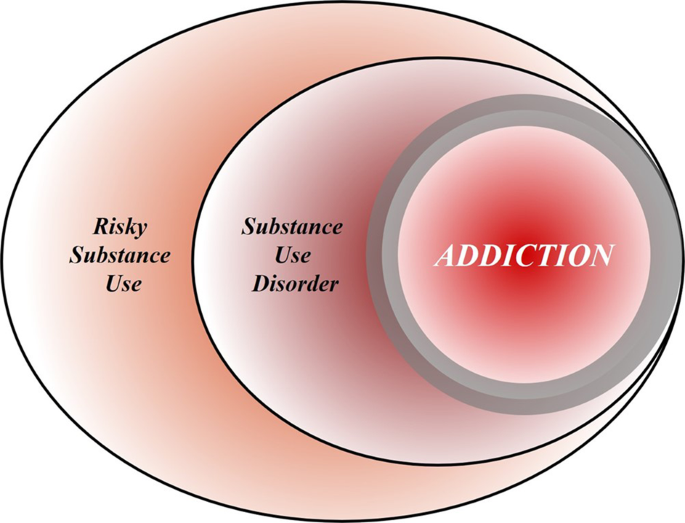

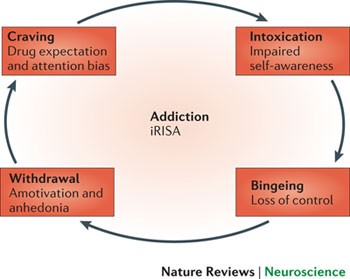
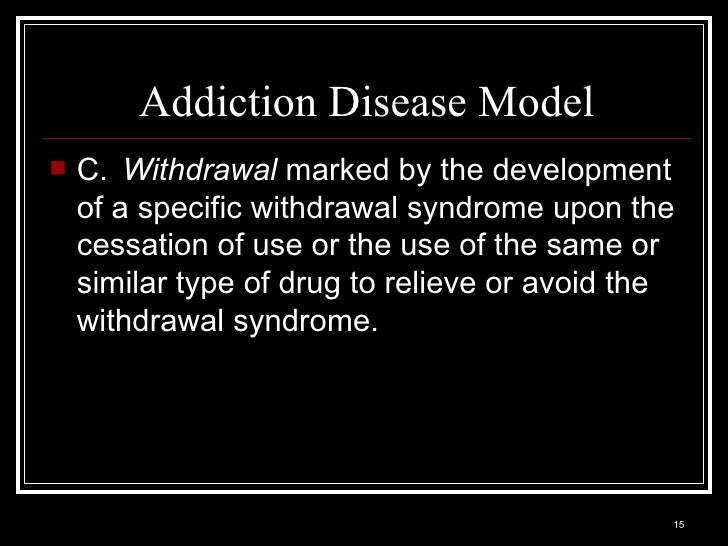
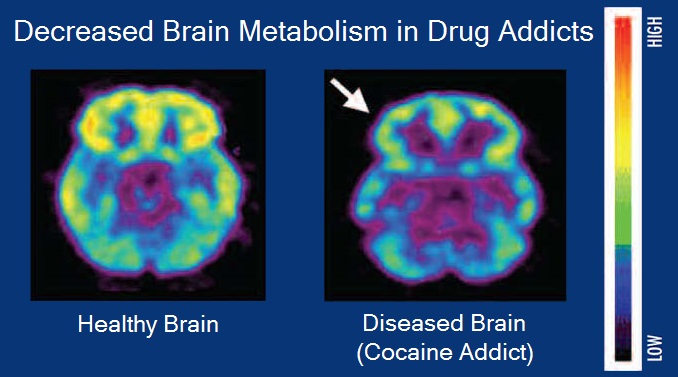


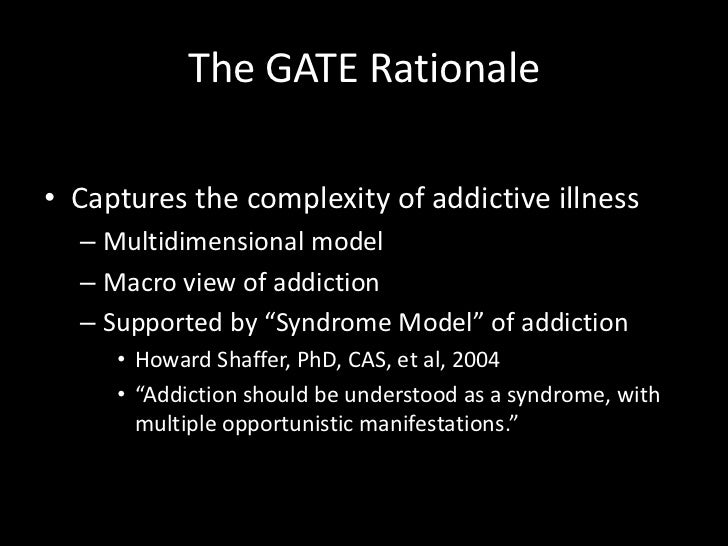

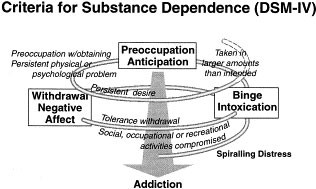
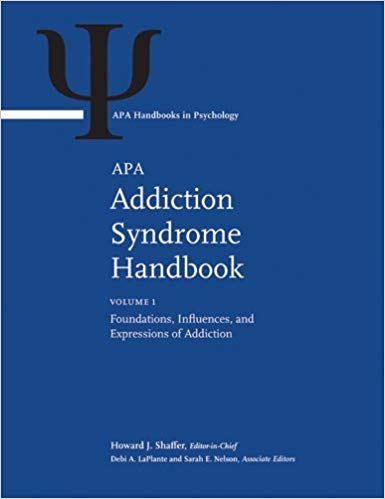

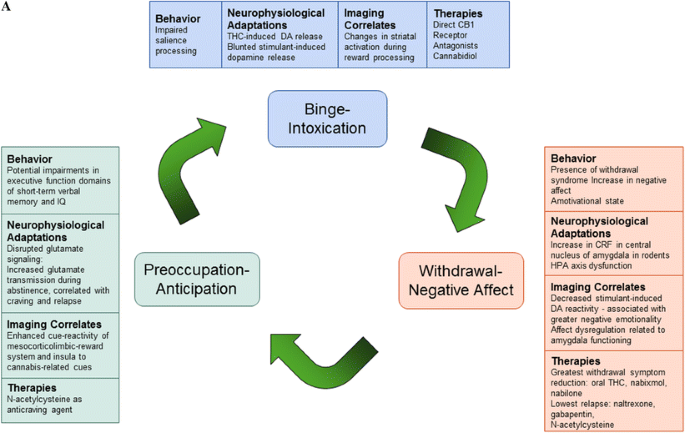
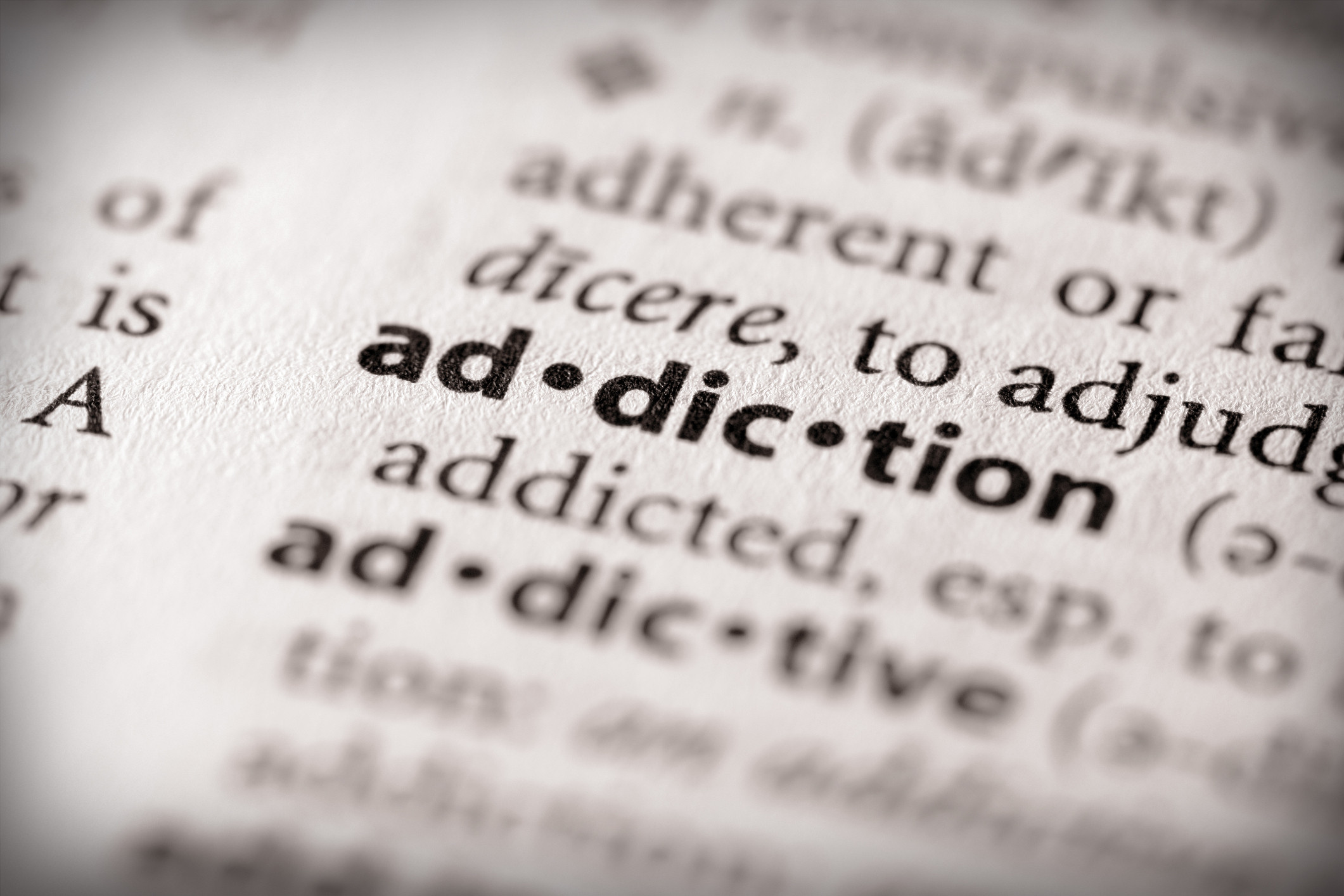


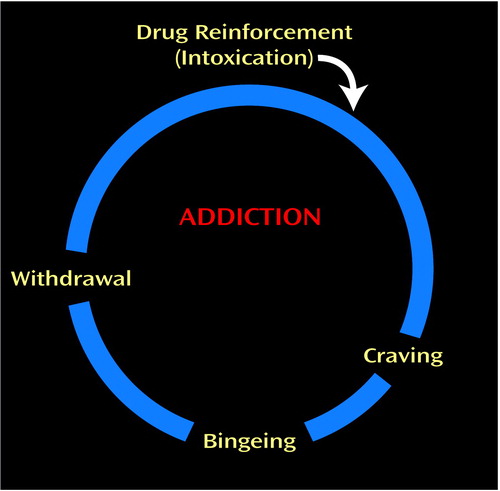
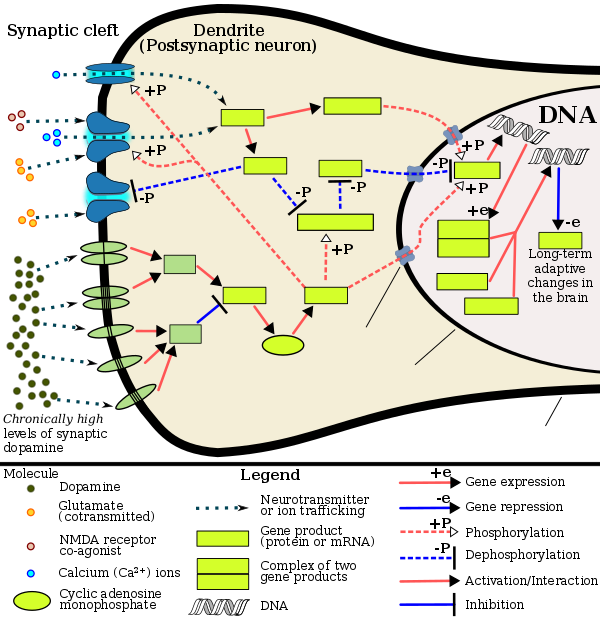
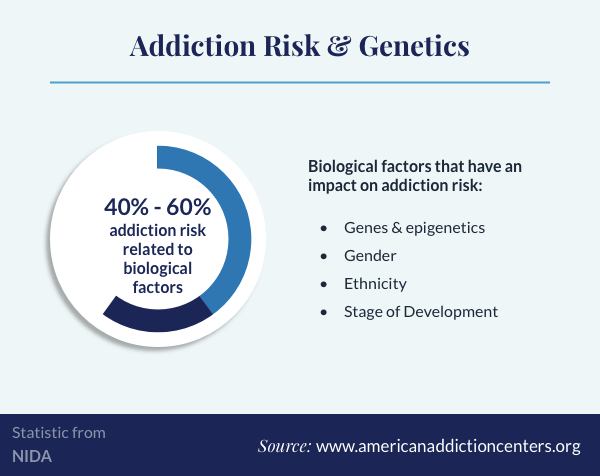




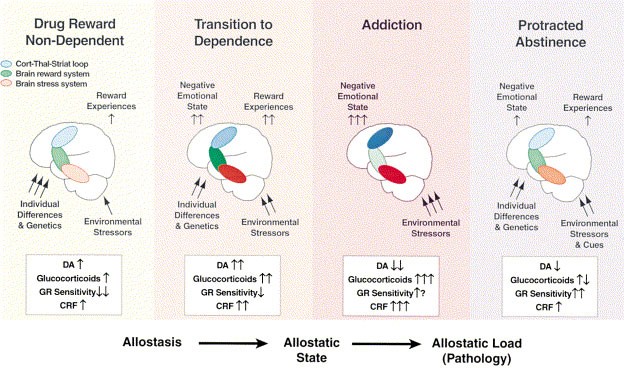









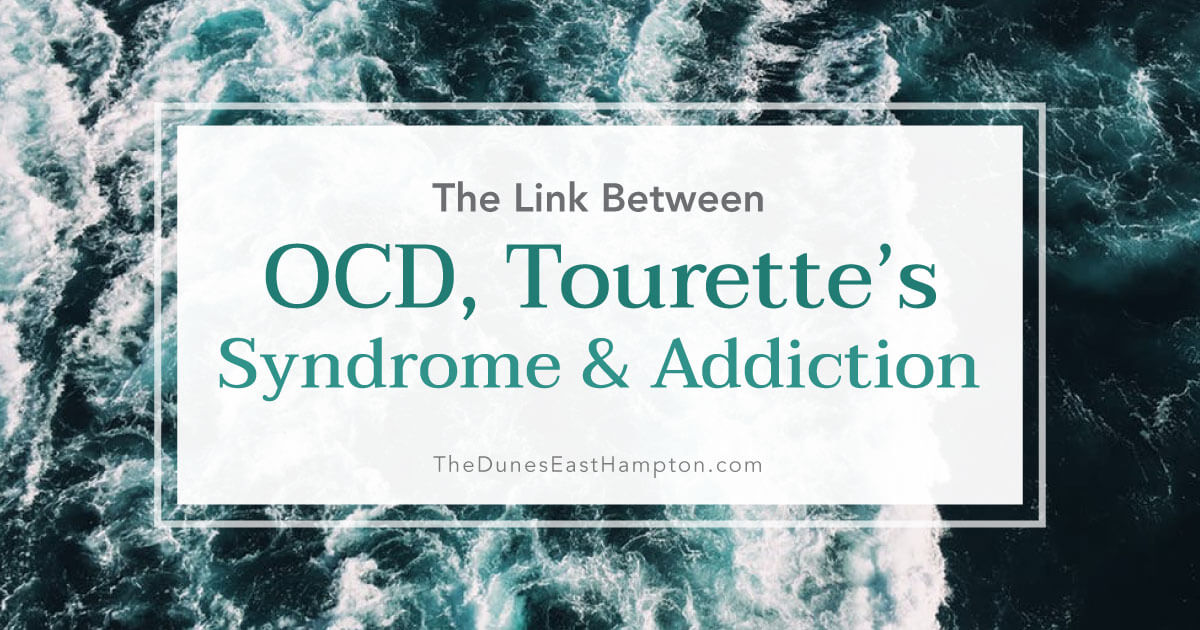



Post a Comment for "Syndrome Model Of Addiction"